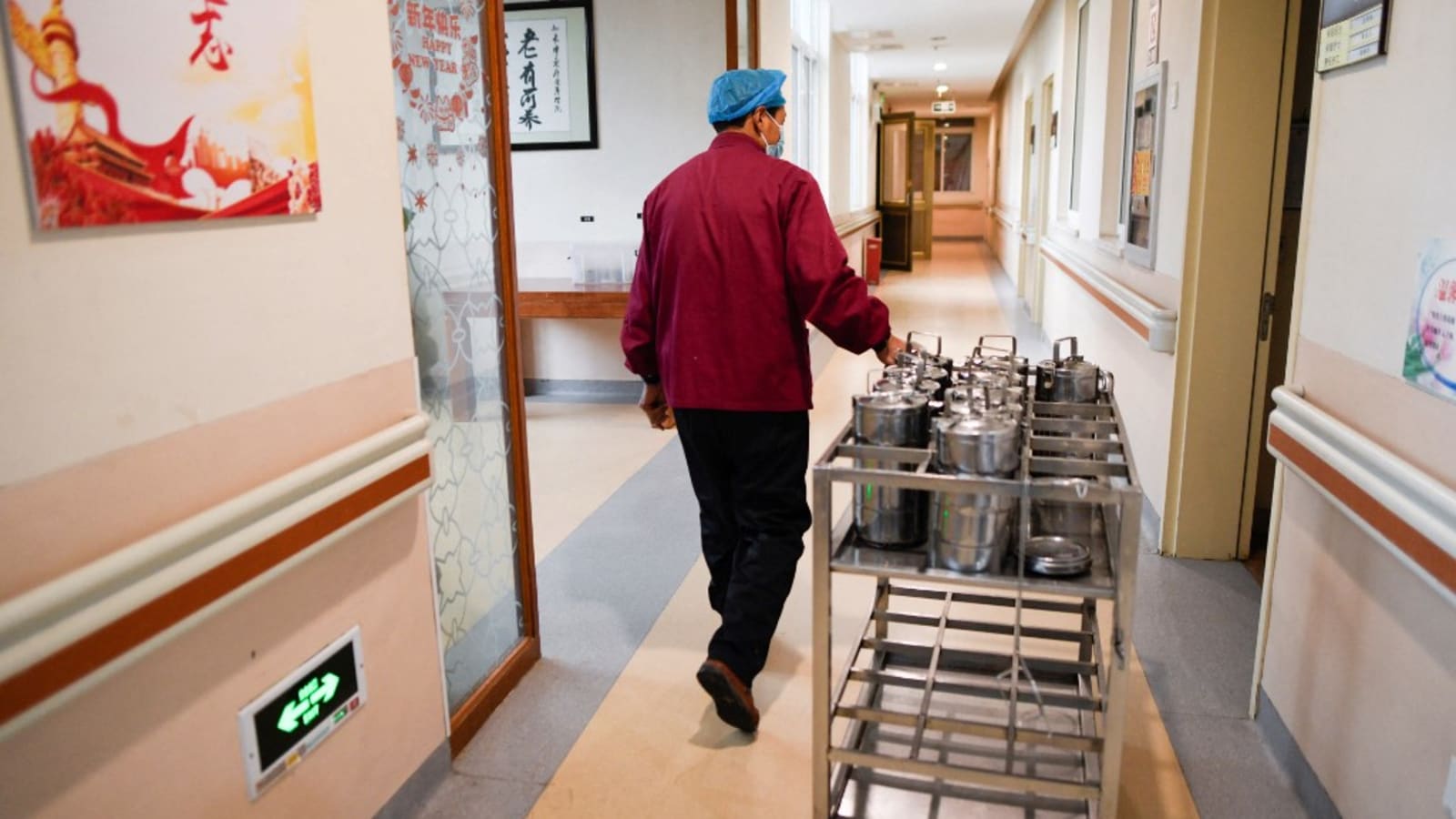BEIJING: China’s nursing homes are fighting an uphill battle to keep their elderly residents safe as a wave of COVID-19 infections sweeps the country following a relaxation of the government’s zero-tolerance virus policy.
Facilities are locking themselves out from the outside world with staff sleeping on site, while struggling to get their hands on medication.
China reported 2,097 new symptomatic COVID-19 infections a day earlier, the National Health Commission said on Sunday (Dec 18).
However, official figures have become an unreliable guide as less testing is being done across the country, while asymptomatic cases are also no longer being reported.
Authorities have warned of rapidly growing caseloads, and industry ministry official Zhou Jian said on Wednesday that the country was “making all-out efforts to ramp up the production of key medicines”.
Experts fear the country is ill-equipped to manage the “exit wave” of infections as it presses ahead with reopening, with millions of vulnerable elderly people still not fully vaccinated.
And eldercare facilities have now been left to fend for themselves as society reopens, the manager of one privately run Beijing home said.
“We are fully sealed off,” the manager, who asked to remain anonymous, told AFP.
Only food and supplies are allowed in, and no one is allowed to enter or leave.
He said the home had ordered medical supplies “at a high price”, but they had not arrived yet after a week, with the city’s logistics network battered by infections among delivery workers.
He also warned it would be impossible to keep the virus out forever. “Couriers and delivery personnel are almost all COVID positive,” he said.
“Even if you disinfect or throw away all the outer packaging, plus the plastic packaging, you can’t spray disinfectant on all the food that comes in.”
Many Chinese eldercare facilities have already been locked down for weeks following local government directives, with Yuecheng Senior Home in Beijing saying last week it had already been sealed off for nearly 60 days.
In Shanghai, the Xiangfu Nursing Home said earlier this week it would continue “closed management”, forcing all employees to sleep on site and giving staff nucleic acid tests every day.
“As society optimises prevention and control policies, our home should in particular maintain high vigilance,” the home said in its statement.
HOSPITALS UNDER PRESSURE
Visits to hospital fever clinics surged in the days following China’s lifting of restrictions last week, though the World Health Organization said the virus was already spreading widely in the country as “the control measures in themselves were not stopping the disease”.
The toll of the abrupt shift away from zero-COVID is still unfolding, with multiple funeral homes in the capital telling AFP they experienced a recent surge in demand.
Health authorities have reported no deaths from COVID-19 in the past week, but have admitted that official figures no longer capture the full picture of domestic infections now that mass testing requirements have been dropped.
“We’ve had hundreds of patients, with a number of patients coming from nursing homes and in their 90s,” though there appeared to be few severe cases, one nurse at a Beijing hospital, who asked to remain anonymous, told AFP.
The nurse, who had recently caught COVID himself and returned to work after just three days, said more than half of his colleagues had been infected over the past few days.
“We can only force ourselves to work to keep the hospital running,” he said. “Those who have no fever and only mild symptoms are returning to work.”

